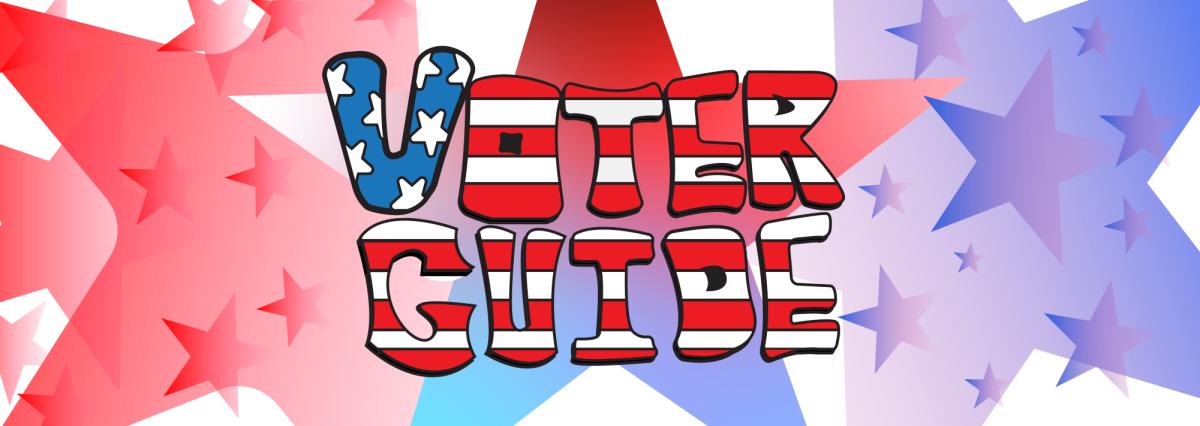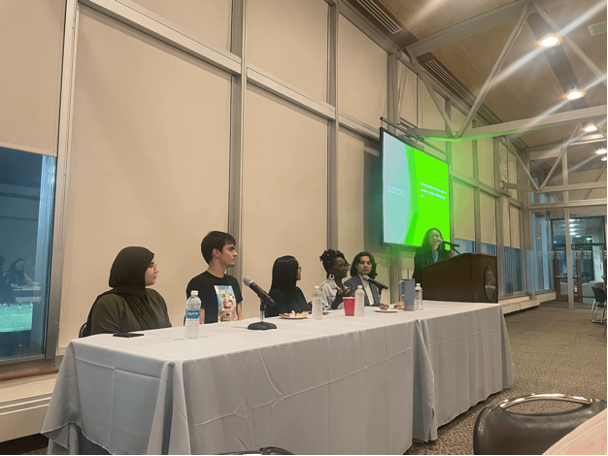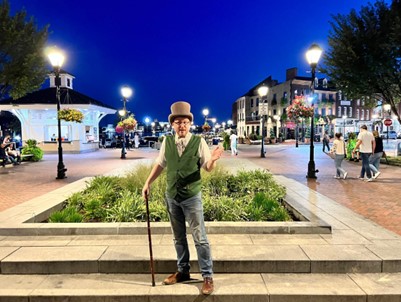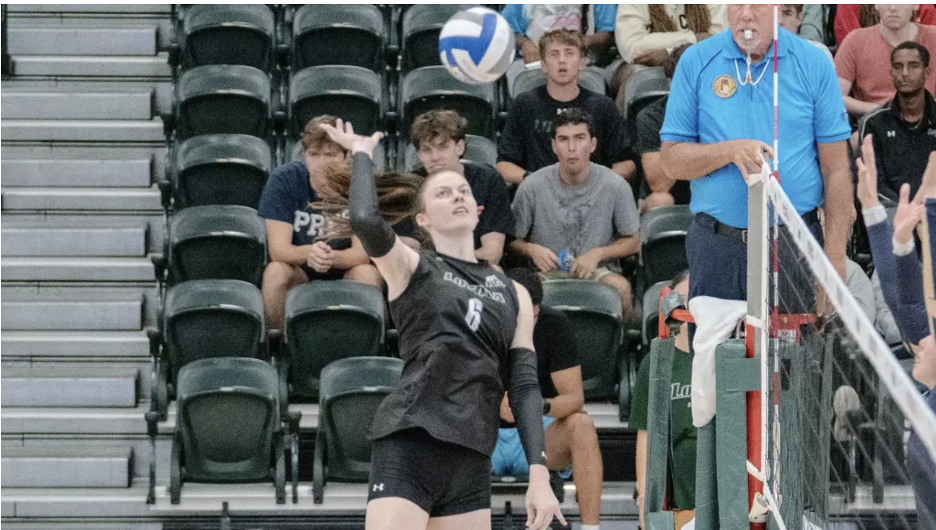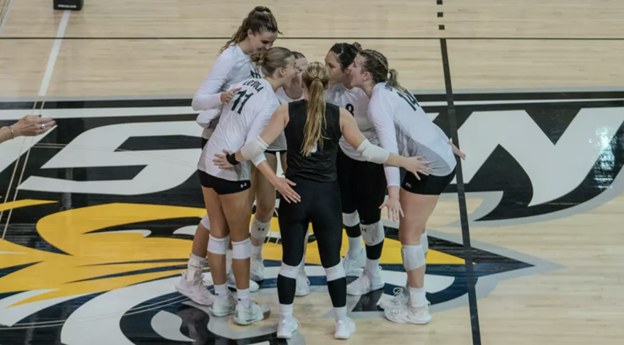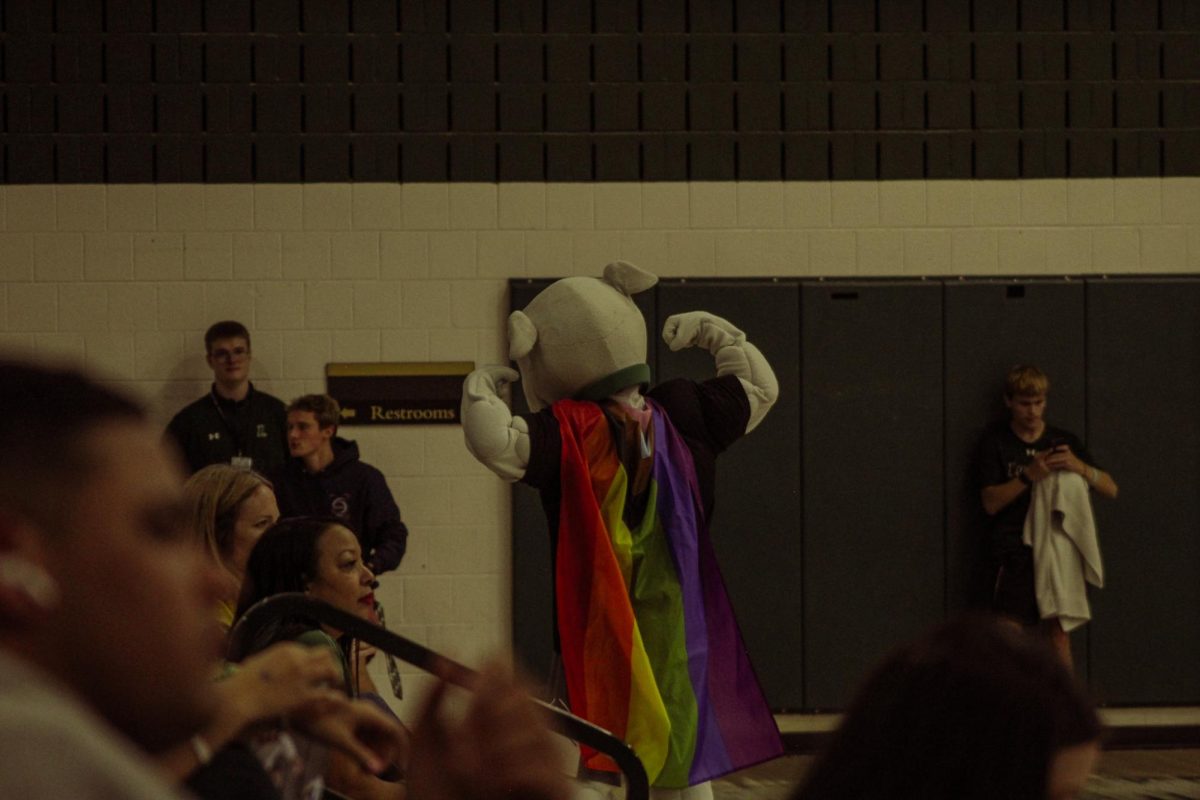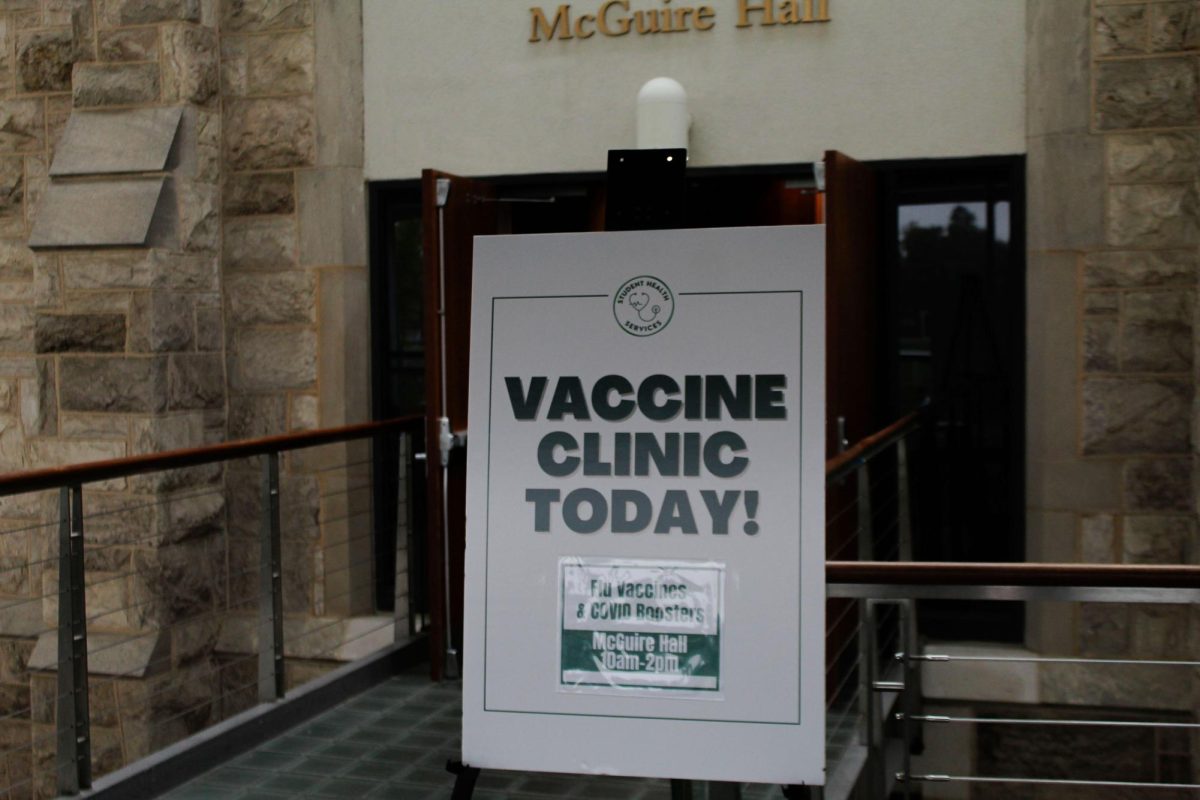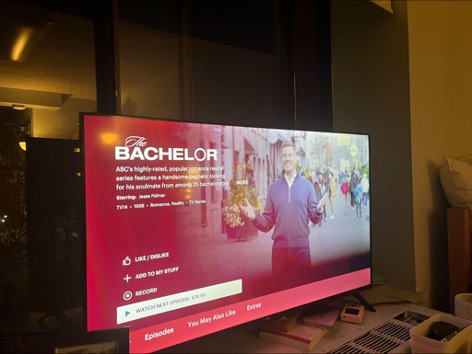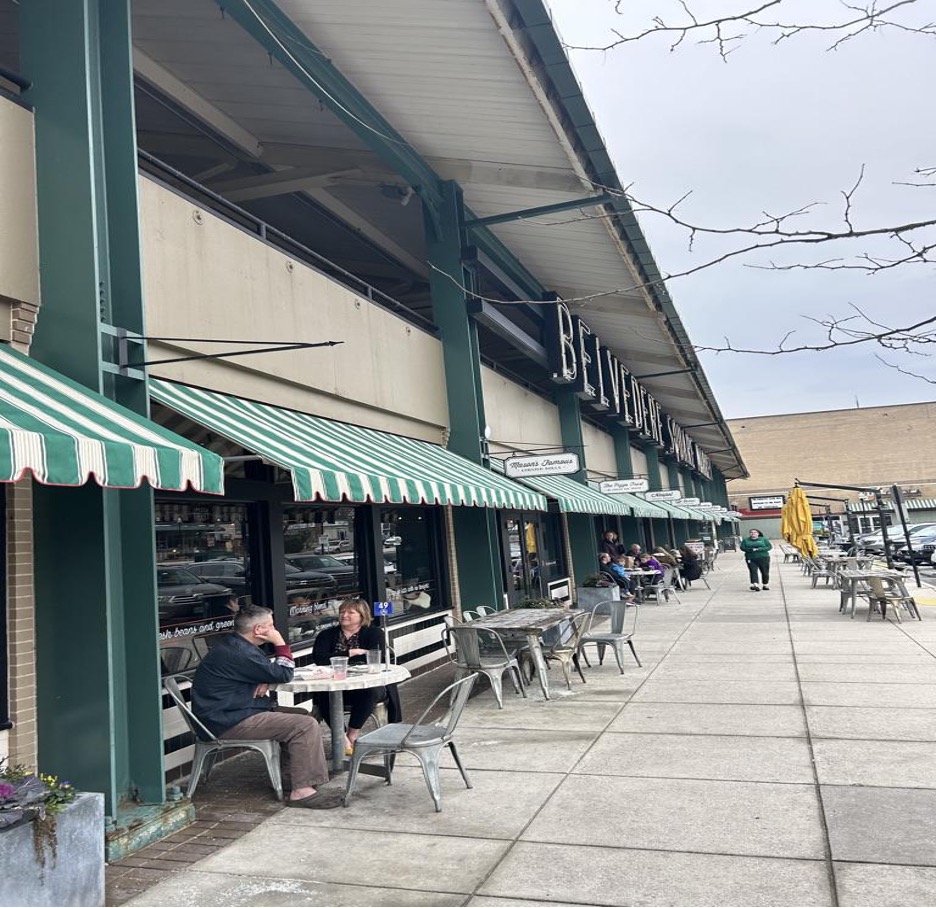The following represents the opinion of the student reporter and does not represent the views of Loyola University Maryland, the Greyhound, or Loyola University’s Department of Communication.
I was supposed to be named Jad Rahal Hunter. I was born 22 years after my mom emigrated from Syria, and she wanted my name to reflect her culture and roots in Quinetra, a village situated in present-day Israel. Having felt her cultural heritage melt away as she assimilated to Western culture, she wanted a name that reflected her homeland’s rich history. Then, on Sept. 11, 2001, that plan changed. Upon hearing the news, a co-worker rightly told her to stay home, not out of an abundance of safety, but due to her name: Fairouz Rahal-Hunter.
My family is not Muslim, but that didn’t matter. In this new world, all Arabs were scrutinized and shamed, and because of this, my family opted to give me a more Americanized name with less weight—something like Aidan Hunter. In the decades that followed, my family bore witness to the anti-Arab sentiment that filled the chambers of Western dialogue as the United States began its “Global War on Terror,” which led to the destabilization of Iraq, Libya, and Afghanistan, with little results to show, aside from the killing of Osama bin Laden. The results of this 20-year-long crusade? No freedom. No democracy; only failed puppet governments that capitulated at the slightest hint of resistance.
Resistance is all the Arab world has known since the end of World War I, but perhaps no one in the region knows more about resistance than Palestinians. Until recently, Western media rarely covered the larger context of the pain, suffering, hatred, and dehumanization that the Palestinians endured since the creation of the State of Israel. Hamas, the terrorist organization that orchestrated the vicious attacks against the Israelis, is a product of 75 years of colonization and forced assimilation of a population that lived in the region for hundreds of years. The history of this conflict is nuanced, but it has largely been shaped by two factors: Western powers and Zionism.
Before World War I, the area we know as Israel was a part of the Ottoman Empire. Due to the Ottoman Empire being on opposing sides of the British and French, both Allied countries orchestrated an Arab revolt. In doing so, they promised the Palestinians an independent country to call home, yet the British colonized it following the collapse of the Ottoman Empire. At the same time, the movement known as Zionism—the desire of the Jewish people to re-establish a Jewish State in their homeland—was gaining traction in Europe. Due to this increase in popularity, in 1917, British Foreign Secretary Arthur Balfour issued a proclamation, expressing the British government’s support for the establishment of a national home for the Jewish people in Palestine. This directly contradicted the previous promise given to the Palestinian people.
Over the decades following Israeli independence, Zionism has grown from being a movement calling for a homeland to an ideology that has been weaponized to create an inherent power imbalance within the region. Perhaps nobody on Loyola’s campus is more qualified to discuss day-to-day life in Palestine than Raneem Odeh ‘26, who is a resident of the occupied West Bank. Odeh moved to the West Bank during her high school years and recounted several instances to me of disproportionate force and dehumanizing rhetoric.
“The occupation itself made it known to everyone that they had no rights. It was very apparent in your day-to-day life,” said Odeh.
At 16 years old, Raneem was tear-gassed for the first time. Protests started outside her school, due to a Palestinian prisoner being denied cancer treatment. She recalls the smell entering the room, as looks of fear began to spread across her class. The tear gas ultimately hovered in the classrooms and the air outside for five hours. When they eventually were able to leave, she recalled the fear of younger students, who she describes as “victims suffering without cause.”
In the direct vicinity of the school that she attended were three other schools, none of which the Israel Defense Forces (IDF) took into account.
“We’re just collateral to whatever they deem fit,” said Odeh.
For many in the United States, the generational suffering of the Palestinian people is thousands of miles away. For Raneem, it is a very real experience, one that she emphasized has been ingrained in her from a young age. Her grandmother was expelled during the Nakba (Catastrophe) of 1948. During the Nakba, officials estimate that 700,000 Palestinians were pushed out of their homes by force, following Israeli independence. Recently, an Israeli minister called for a second Nakba. One member of the Likud, the ruling party in Israel, even called for using nuclear weapons on Gaza.
The question that has lingered in dialogue around the world has been the question of proportionality. In a conversation between Piers Morgan and Egyptian political satirist Bassem Youssef on this topic, Youssef prompts us to consider how many Hamas militants have been created as a result of the bombings on Gaza, following October 7th.
It’s a question that harkens back to the dialogue over terrorism in general. How many terrorist organizations have been created during the West’s crusade in the name of terrorism? How was ISIS able to acquire such a foothold in war-torn Iraq and Syria? What history has taught us over the past 25 years is that the disproportionate slaughter of civilians will inevitably increase terrorism down the line.
This is a lesson that President Biden tried to warn the Israeli government of, on a trip to Tel Aviv. On this trip, Biden warned the Israeli government not to repeat the mistakes of the United States.
“After 9/11, we were enraged in the United States,” he said, “And while we sought justice and got justice, we also made mistakes.”
Yael Ben-Chaim is a member of Jewish Voice for Peace Baltimore. A granddaughter of a Holocaust survivor and an Israeli-American, Ben-Chaim said that it wasn’t until her time in college where she said she was “Able to orient [her]self to new perspectives and visions of what [she] saw [during her time in Israel].”
Ben-Chaim has done both a 10-day birthright program as well as a gap year program from 2012-2013. During my phone interview with her, she shared her experience in Israel and her perception of the dehumanizing treatment of the Palestinians.
“If you look at a map, it is an Apartheid state. It’s literally two people living apart from each other,” Ben-Chaim said.
Amnesty, an international global movement with the goal of ending human rights abuses, notably also labels Israel as an apartheid state, citing policies like Israel’s color-coded ID system for Palestinians and support of violent and illegal settlements. Ben-Chaim then explained to me a time when she was going through a checkpoint on a Coach bus. At the checkpoint, an Israeli army official got on the bus and scanned the crowd of passengers.
“He got on the bus, probably saw that we were white and American, and got off. That probably doesn’t happen if you’re brown or Palestinian presenting, and oftentimes, violence is used,” she said.
Some label anti-Zionists as anti-semitic. The trends from this dialogue seem to be generational. Many of those who are from younger generations, such as Millenials and Gen Z, support the argument that anti-Zionism is not anti-semitic, while those of older generations claim the opposite. To Ben-Chaim, the idea that anti-Zionism is inherently anti-semitic is a “mind-boggling” claim.
“My allegiance isn’t to the racist and terrorist government of Israel… that doesn’t mean that I am anti-semitic.”
Jewish Voice for Peace illustrates that anti-Zionist sentiments within the Jewish diaspora are from the concept of “a land without a people.” Israel was founded on this doctrine within a pre-established land with a differing ethnic majority, Palestinian independence is inherently resistant to this idea. As Zionism has its roots in marginalized ethnic Jews such as Ashkenazi, a hierarchy has always existed within its doctrine. As such, the State of Israel has not even treated all Jews, such as Ethiopian Jews, with equality, let alone the Palestinians who are at the heart of this issue.
Yet, even before October 7th, some tried to label anti-Zionists, pro-Palestinians, and Orthodox Jews against the State of Israel as anti-semites. Canary Mission, an online database meant for exposing anti-Semitism in the United States, has been warped into a database for cataloging anyone who expresses disapproval of anything Israel has done, leading to many online being fearful of showing support. When asked about this, Odeh said the following:
“I am a Middle Eastern hijabi woman. I am the face [of bigotry] no matter what.”
Benjamin Netanyahu, a member of the Likud Party, and the prime minister of Israel for 16 non-consecutive years has been outwardly against a two-state solution, and would rather be in control of the Palestinians. As recently as July 2023, Netanyahu stated that the Palestinian goal of statehood “must be eliminated.” The same article is clear that Netanyahu would rather puppet a weakened Palestinian Authority than allow any of the Palestinians to govern themselves. This includes the West Bank, which has very little Hamas presence and is governed by the secular Palestinian Authority, rather than Hamas itself.
After the most recent election in Israel, the unified Likud Party is the most far-right government in the nation’s history. Some ministers in this government, like Itamar Ben-Gvir, have a track record of being ultranationalists and supporting terrorists. While there is no justification for Hamas’ actions on October 7th, there’s a crucial issue that even Israeli news outlets are speaking out about Israel’s funding of Hamas.
Yasser Arafat was the leader of the Palestinian Liberation Organization (PLO) and the Fatah Party, which fought against Israel during much of the 20th and early 21st centuries. The PLO is more secular in nature, refraining from using Islam as justification for fighting against Israel. Hamas, which was established in 1987, called for the annihilation of the Jewish population and the destruction of the State of Israel. The goal of propping up Hamas was to combat secularism with Islamic extremism so that the in-fighting would collapse inward. That backfired.
The more modern history of the conflict with Hamas stems from the decision of the Bush Administration and the Israeli government to allow democratic elections in the Gaza Strip in 2006, after the withdrawal of Israeli soldiers in 2005. Following a Hamas victory, in 2007, Hamas leadership expelled the Palestinian Authority from Gaza, murdering several in the process. Contrary to popular belief, Gazans did not elect Hamas due to its stance on Israel, rather, its stance on corruption and internal security. Furthermore, over half of Gazans weren’t even born when this election took place, and according to the Palestinian Center for Policy and Survey Research, 77 percent of Gazans want new presidential elections to take place.
With all of the suffering going on in both Palestine and Israel, at what point does it end, and what is the solution? On November 16th, Loyola University Maryland hosted a lecture called Pathways to Peace in Israel-Palestine: Lessons Learned, by Dr. Mohammed Abu-Nimer, a native of Israel who is the Abdul Aziz Said Chair for Peace and Conflict Resolution at the School of International Service at American University. Until both sides are committed to following these steps and breaking the cycle of hatred, he argued, it unfortunately seems unlikely that war in the region may ever end.
“If you can’t find the humanity of the other side, your humanity compass is broken,” Dr. Abu-Nimer said toward the end of the lecture.
As of Dec. 5, over 100 hostages had been released from Gaza, and in exchange, 240 Palestinian prisoners were released to Hamas. At the time of writing this article, all Palestinians living in Gaza have been pushed into an area the size of Los Angeles Airport, and Israel seems bent on continuing the siege. How this ends is anyone’s guess, but I am certain that there will be no resolution that guarantees the safety of both Israelis and Palestinians, unless Hamas and the Likud Party are removed from power.
The Greyhound is committed to publishing a diversity of opinions. We’d like to hear what you think. Our email: [email protected].






